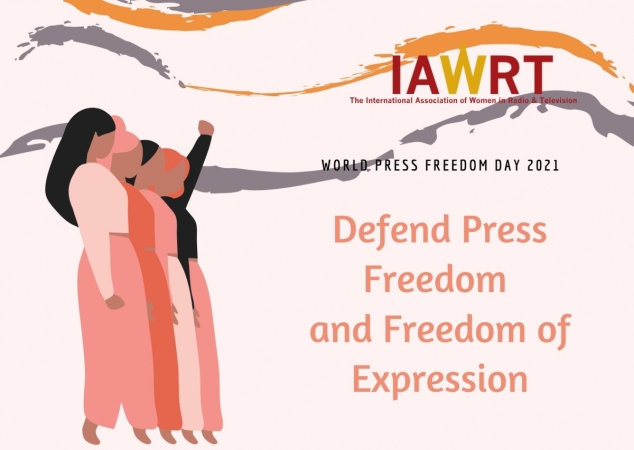IAWRT World Press Freedom Day statement 2021
The International Association of Women in Radio and Television gathered for an online protest on World Press Freedom Day 2021 to respond to so many human rights violations worldwide that put the lives of journalists at risk.
Our network has not been exempted from these violations. Here are some inhumane acts that some of our members have experienced
· On December 10, 2020, journalist and IAWRT member Malalai Maiwand, and her driver, were killed in Afghanistan.
· On the same day, Lady Ann Salem, our Communications Officer was arrested on possession of firearms and explosives trumped up charges. After almost three months, she was released after the court dismissed the charges as baseless and inconsistent.
· Journalist Frenchie Mae Cumpio, IAWRT Philippines member is still in jail since February 7, 2020, arrested in a similar fashion and detained on similar charges as Icy was.
· Several IAWRT members are working in countries reeling from war or grappling with the pandemic, both conditions have impeded or have been consciously used to restrict their duty of finding out and reporting the truth
With the steep rise in the attacks on journalists and a weakening in regulations protecting freedom of expression, indeed, women journalists and media workers, are in a very difficult situation.
The harassment of journalists not only affects media practitioners but shortchanges citizens who depend on the media to provide a critical service in society – denying people to access to truth which is a very sad reality.
A recent study by UNESCO, on online violence against women journalists, also shows that the majority of women journalists surveyed had experienced online violence relating to their work. Online violence against women journalists is used to silence independent voices, spread disinformation and undercut fact-based journalism.
In addition, more than 1,000 journalists have died due to COVID-19 according to the Press Emblem Campaign in April this year. Many of these deaths came as a result of a lack of protective equipment and unsafe working practices.
We stand with these struggles of journalists especially women journalists who, at the same time, continue to fight for their piece of airtime, for their spot in newsroom leadership and for women’s voices to be heard. We would also like to recognize the work that they have done and been doing as women journalists-truth tellers.
IAWRT joins all journalists and media workers from all over the world, to call for urgent measures to counter continuing threats and crisis worsened by the COVID-19 pandemic.
We pray for the day when journalists are reporting the news and not making the news, for COVID-safe newsrooms, and general safe environments for media practitioners.
https://fb.watch/co72Q4buHd/








